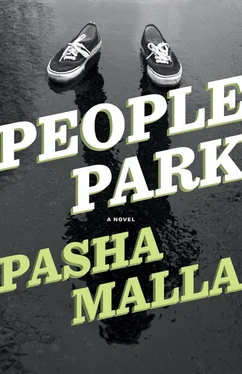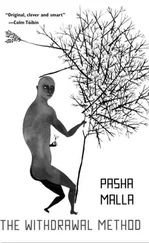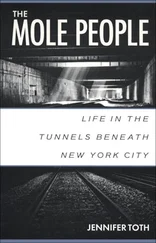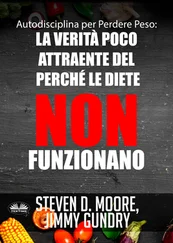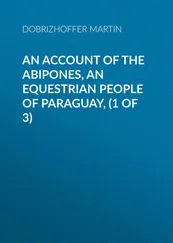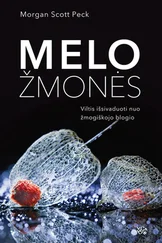The cuts on his forehead, where the Hand’s shirtless friend or brother had smashed the tube, were drying into a scabby acne, his left eye remained swollen shut. Moving away from the window Calum avoided his reflection for fear of what he’d see: a monster. But a very weak monster, weak as a slave, who’d stumbled bleeding and delirious out of the silos into Whitehall, and now found himself here, outside the Room, the slave who’d escaped, found the world too big, and dragging his chains returned to the only place he belonged.
But that was not the whole story. When his final throw had landed harmlessly in the girl’s lap the silo had gone silent. Uh-oh, said the Hand, and a great crest of laughter rose up and came crashing down, Calum felt useless and stupid, dumbly confronted with what he hadn’t done. The shirtless guy in the welding mask grabbed the Hand by the hips and pulled her onto his lap and said, Gotta break that thing on your head, those are the rules.
The rules. In shame Calum collected the tube from the girl’s lap. She was chuckling. Her twin brother (were they twins?) was coming to on the floor, making soft groaning noises. She said, Nice shooting, and everyone found this very hilarious indeed.
Yeah, nice shooting, the guy said, lifted the Hand’s shirt, his fingers scurried spiderlike up inside.
Calum’s fingers closed around the tube. He stared into the girl’s dark sunglasses, at the suggestion of eyes in there — he sensed scorn. Let’s go, called the guy from the couch. Crack that thing on your face, he crooned, my sister here’s dying to see it. Another surge of laughter — and Calum wound up and smashed the tube across the girl’s face.
She wilted from the stool and lay there twitching on the floor. Half the tube remained in Calum’s hand, the other half shattered into craggy bits. He tossed it, a faint tinkle of glass followed by a thick, brooding silence. And then there was a rush, like a flock of crows unleashed from a rooftop, and Calum turned, and, led by the guy in the mask, a faceless mob was descending upon him.
Now, moving down the laneway beside the Room, his vision kept clouding over, he had to shake his head to clear it. He reached the water, made fists, bashed his knuckles together in a hollow knock of bone on bone. Out on the lake someone’s sailboat, a little white A, tacked across Kidd’s Harbour. Calum watched until it moved out of view, then he headed back out to F Street. After a few steps the world reeled and swam, he staggered, had to regain his balance on a parked car. Halfheartedly tried the door: locked. Farther along was a payphone, which he checked for quarters. One sat in the slot.
Calum tossed the coin in the air, guessed heads — tails — flipped it twice more before he got heads, then fed the phone. But who to call? Not Debbie, he only had the number of the Room, not Edie, not one of their friends, not his mother. Not the Hand.
The money clunked down and was lost. He jiggled the cradle, no luck, took a measured step back, stomped the phone as hard as he could, his sneaker fell off on the backswing. Sullenly he fetched it. His stomach gurgled. He felt dizzy and sick. He leaned against the wall.
Where was Debbie? Calum thought about how giving she tried to seem, how generous and caring, yet she maintained a safe distance: he didn’t even know where she lived. Who was she, really, this person who wanted everything from him, that he talk and share and trust her, for him to be better — and she believed this was generous, just to listen.
Calum headed south down F Street, his head humming a muffled, cloudy sort of tune, with nowhere to go and no one to see, and nothing to do with them when he got there.

AN ARTIST SPEAKS only with her hands, said Loopy, and displayed them: palms, then backs.
The Museum of Prosperity archivists stared.
Likeways, to exfabulate upon my hands, Pop said, laying them on the picnic table: My hands are my words. And my words are my hands. Therein lives the paradox.
The Mayor used her own hands to hide her face.
But back to this travestation, said Pop, and whom we can be sure is gullible.
The archivists met his knowing, shrewd look with equal bewilderment.
Do I have to spell it for you? The illustrationaire!
And to think these hands once sculpted his likeness, moaned Loopy.
Moreover! To think he has now, poof, into thinned air, envanished the only remaining relish of Lakeview Homes!
One of the archivists blinked. The other said, Relish?
Prehaps you need an illustration of my own! Pop thumped the table, held up his fist, rotated it slowly, almost forlornly. How are we to take back the night if the moon — the fist’s rotations paused — has been conciliated by the irradiating sunshine — here he covered the fist in his other hand — of a forever-long day?
Pop concluded by exploding both hands outward, fingers fluttering, and then hid them under the picnic table. In his eyes was triumph.
Banished to the periphery among Friendly Farm’s animaltronics were Debbie, Loopy’s assistant, and Diamond-Wood. The latter’s walkie-talkie buzzed, he listened, whispered, hung up, and tapped his crutches against a pig, its metal hide clanging, and shot the Mayor an urgent look.
What, she said.
Diamond-Wood ungagged himself. My people think it’d be a mistake not to rule out certain parties known for vandalism around the city. We —
Pop snorted. Parties ? Perhaps your own party wishes the city’s attentuations misguided? For was it not your party, sir, whom initiated the illustrationaire’s pretence?
Excellent point, said the Mayor. Touch green.
Diamond-Wood staggered forward, bumping the pigs — which activated their animations: one mounted the other and began to thrust. Though their lovemaking began gently, almost sensual.
Ignoring the carnal whinnies and jigglings, Diamond-Wood hobbled up to the picnic table. Please, he said, Mr. Street —
Don’t you please me! Aggregately, your organization has also empropriated my home! My home, Mrs. Mayor! You are savvy to this?
The Mayor said, Nope.
The mechanical coitus intensified, the pigs’ prerecorded ecstasy escalating into howls, metal clanged against metal. Debbie and Loopy’s assistant cowered behind a dromedary.
I can’t speak to that, said Diamond-Wood, though the proper procedures —
My home , Pop roared. First my home, a quartered century hencefrom, and now. . Once again , my home! Recurrently!
But —
As though time itself has too gone loopy!
Loopy leaned into the conversation, grinning benevolently.
But everyone’s attention had been diverted by the pigs. Their squeals reached a pitch both tortured and rapturous, one slammed into the other with force adequate to either resuscitate it from near-death or kill it for good. And just as the frenzied creatures seemed ready to rip free from the cement, with a final heave they lurched to a stop. Everything was still. The creatures’ eyes were stupid and oblivious.
Well, said Debbie, that was something, and everyone agreed.

HI ADINE. This is Sam.
Hi, said Adine. You’re about two and a half minutes early, buddy. Give me one sec?
Through the phone Sam could hear his sister’s TV, a voice was talking. He flipped around until his set’s sound matched hers: channel 73. It was a boring show, just a woman at a table telling the camera about her sadness. Through the phone Sam could hear his sister breathing in the steady, in-and-out way of someone sleeping. Then the woman said goodbye and thanks for listening and there was a rustle on the end of the line and Adine said, in a small voice, Hey, buddy, sorry about that.
Читать дальше
